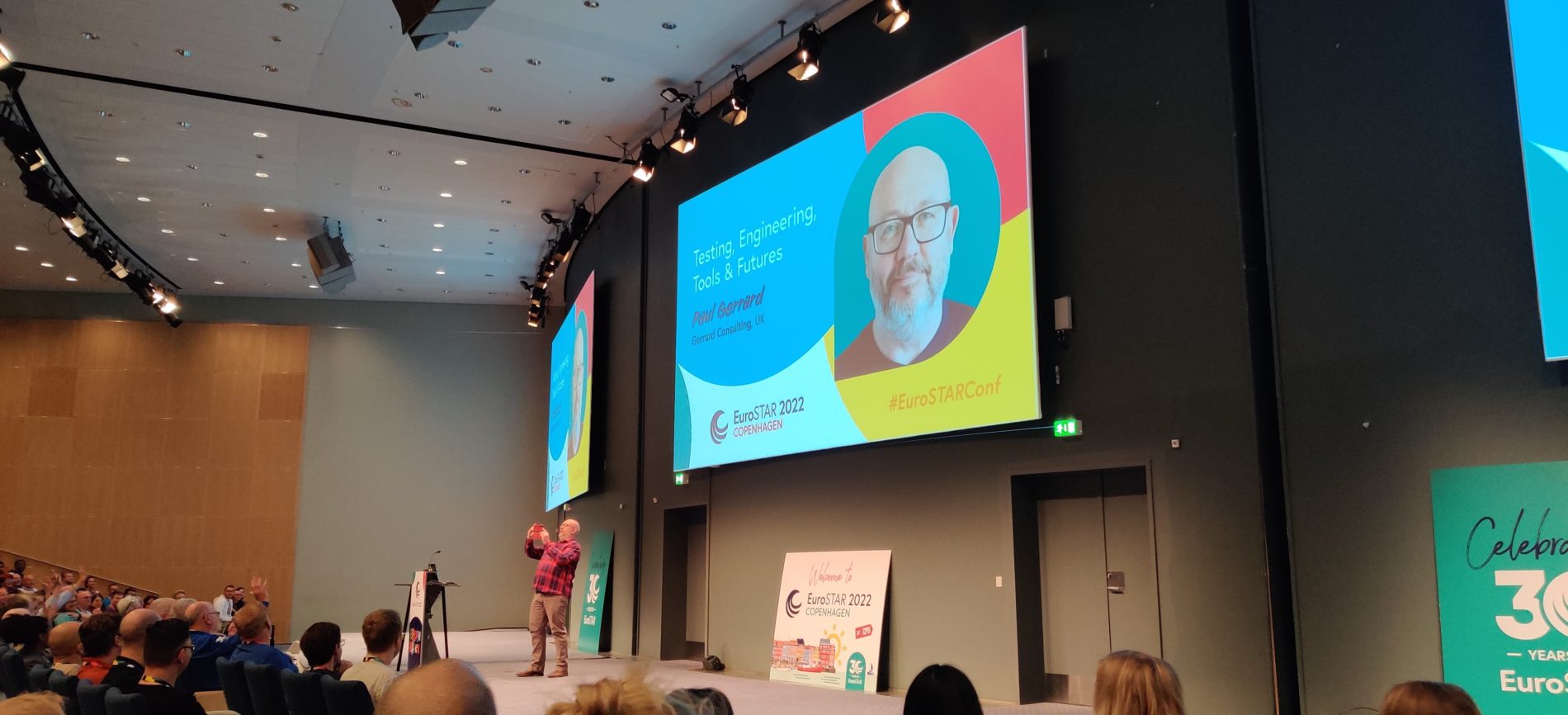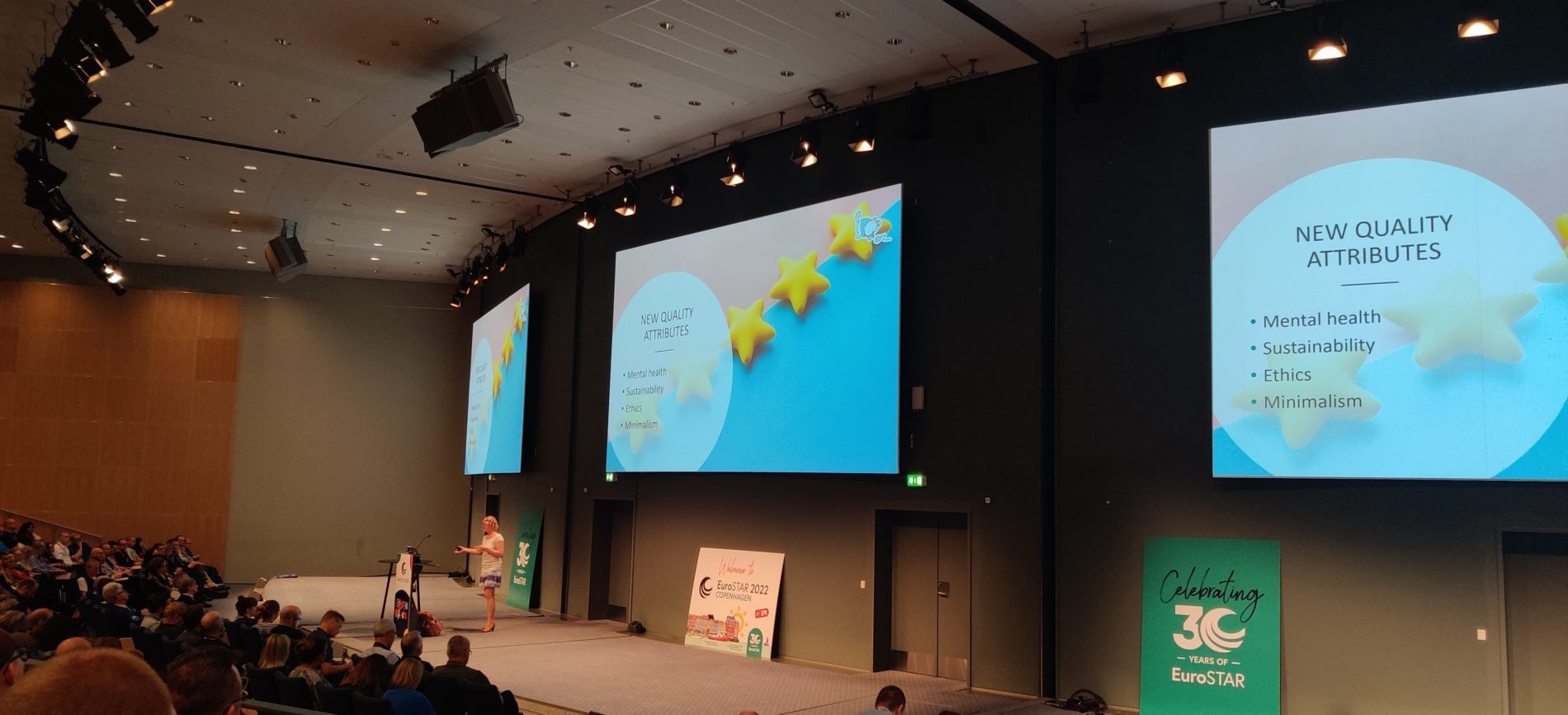Evolving Software Testing Best Practices at #EuroSTAR 2022

Last week members of our service, network and sales teams gathered in Copenhagen to take in software testing best practices at the 2022 EuroSTAR software testing conference.
On the ground, in our discussions, and during sessions we picked up on three key themes important to the future of our industry —
(1) We have to solve the and/or tension between manual and automated testing.
A number of speakers and presenters touched on our collective understanding that manual testing is around for the long term. At the same time, it’s clear that testers need to be increasingly cross functional, and integrated into teams/automated workflows. As Paul Gerrard put it, “[we] don’t want tools to replace [testers], we want the tool to help [us].

Tools reinforcing the human elements of the software dev process, and evolving the narrative around testing beyond what is commonplace is something that we’re pushing towards at Testlio. We feel strongly that it’s time for our industry to really grapple with the manual/automated testing divide, and particularly testers’ connectedness to the team and relationship to automation.
That might include integrating testing more deeply into the team and process, as Thomas Shipley proposed, and it will almost certainly hinge on leveraging automation to drive speed and quality, as Dawid Pacia put it.
(2) External social and business considerations are starting to impact testing — and it’s about time.
For decades, businesses have become more and more involved in social impact — and it’s playing an increasingly large role in decision making. Software testing hasn’t been unaffected by these dynamics…but we haven’t always been leading at the forefront of them either.
It was invigorating to hear ideas like those in Bob Van de Burgt’s “Supersonic” talk on sustainability in testing. Underperforming and inefficient applications and bad tech choices can very affect the carbon footprint of an enterprise; code that is inefficient can use more computational resources — and even impact system performance in a setting like building HVAC automation. We often don’t transparently see or feel the impact of these choices in the way we once did thanks to the advent of cloud computing and AWS, so it is even more imperative that we pay direct attention to our footprint.
Likewise, data handling (and by extension, data privacy) will be increasingly important as testers grapple shared responsibility for massive data pulls from things like self-driving cars. This all points to a “tester-as-consultant” paradigm that is evolving, with testers thinking not just about functionality, but also flow, form and data responsibility and ethics in the applications they test. Huw Price nailed it by saying, “If you don’t understand the data, you don’t understand the business. Any effort that you put into understanding the data helps you test better.
(3) Embracing uncertainty is how the QA and software testing industries will grow.
Alexandra Schladebeck’s keynote, which really resonated with our team, suggested that living in uncertainty will become more and more common for testers, and people generally.

Alex, like many speakers at the conference this year, touched on mental health and on holistic views about life and testing. With a presently shifting world, economic outlook, and business priorities, testers are going to need to embrace uncertainty to remain agile.
All of this begs the question: will we be ready? Ready for new technologies (Metaverse, AI, etc.)? Ready for ambiguity and complexity and uncertainty? This are big, hairy questions — and we’re glad the industry is asking them, because when it comes to testing, we’re hoping to be at least part of the answer(s).
